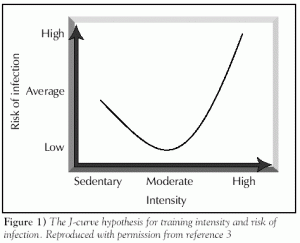Audio clip: Adobe Flash Player (version 9 or above) is required to play this audio clip. Download the latest version here. You also need to have JavaScript enabled in your browser.

Recent research at the BC children’s hospital in Vancouver, Canada has unearthed one of the mysteries of an immune cell that may play a key role in combating auto-immune diseases.

"A Regulatory T Cell" Image Source: http://www.iayork.com/Images/2008/12-8-08/BioLegendTReg.png
The cell in question is the regulatory T cell (Treg), a regulatory cell responsible for the management of immune responses. While largely unstudied, this cell has been found to prevent disease and illness brought on by the body’s own immune system. Tregs monitor our immune systems and counter-balance the constant assault against the cells within our bodies both malignant and benign. In a sense, they’re the whistle blowers of the body police.
While the job of Tregs is to control and reduce immune response, they can also be used to quell a person’s runaway immune system and subdue the illnesses our immune systems can sometimes create.
Audio clip: Adobe Flash Player (version 9 or above) is required to play this audio clip. Download the latest version here. You also need to have JavaScript enabled in your browser.
While Treg therapy may seem futuristically out of reach or too good to be true, preliminary trials so far demonstrated promising results in human and mouse models. Anti-immune therapies using Tregs have been so effective and versatile that they not only treat the inflammation in Crohn’s Disease but tissue rejection in organ transplants. At times, this cell is even capable of giving the body life long tolerance to the transplanted foreign organs.
Audio clip: Adobe Flash Player (version 9 or above) is required to play this audio clip. Download the latest version here. You also need to have JavaScript enabled in your browser.

"Simplified Illustration of the Inflammatory Response" Image Source: http://www.rkm.com.au/immunology/immune-images/IMMUNE-inflammation-R-600.jpg
Despite these triumphs, Treg therapies still have a long way to go. The recent discovery found by the BC researchers shed light on interactions of Tregs with Neutrophils, immune cells involved in the generic first response of immune systems. While Tregs are meant to suppress immune responses, they seem to attract neutrophils in vast quantities which are highly inflammatory in nature. Until more is known about the relationships and functions of Tregs, researchers may run the risk of accidentally triggering an immune response when trying to reduce it. Another possible risk to consider is that Treg therapy may increase our risk of cancer by suppressing the cells responsible for keeping it in check.
Audio clip: Adobe Flash Player (version 9 or above) is required to play this audio clip. Download the latest version here. You also need to have JavaScript enabled in your browser.
Despite these risks it is obvious that Treg therapies have an untapped potential with almost limitless application to illnesses associated with an overactive immune system. Our bodies’ tolerance of Tregs and their adaptive and responsive nature make them not only ideal in that they act like living cyclosporine, but they have been tweaked and perfected to be the ideal immune suppressant for over millennia, before we ever got sick.




